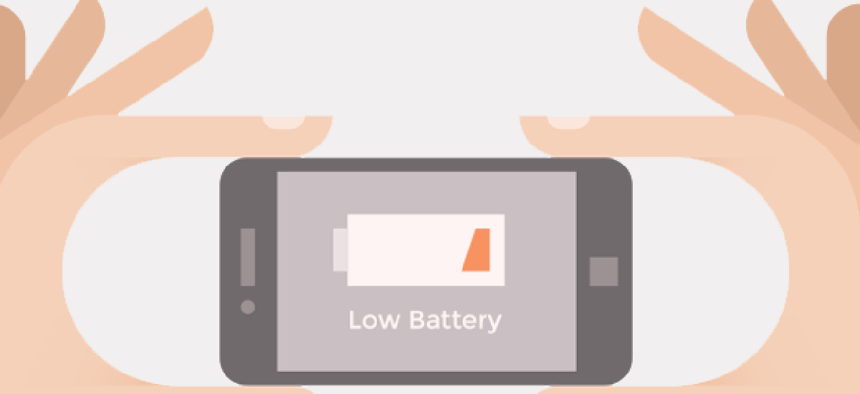Software slows smartphone power drain


Connecting state and local government leaders
The new tool reduces smartphone battery drain by intelligently suppressing background activities.
As smartphones become the remote device of choice for government workers, battery life becomes a an increasingly important concern. And a recent study found that apps can drain almost 30 percent of battery power even while the screen is off, with a good portion of the power loss caused by apps that frequently wake up and run in the background.
That study, conducted by researchers from Purdue University, Intel Corp. and startup company Mobile Enerlytics, monitored 2,000 Samsung Galaxy S3 and S4 phones served by 191 mobile operators in 61 countries.
"During screen-off, the phone hardware should enter the sleep state, draining close to zero power," explained Y. Charlie Hu, a Purdue professor of electrical and computer engineering. "Apps wake the phone up periodically during screen-off to do useful things, but then afterward, they should let the phone go back to sleep.” But incorrect use of application programming interfaces introduce software bugs called “wakelocks” that prevent the phone from going back to sleep.
The researchers found a way to save about 16 percent of the power drain caused by wakelocks with a new system called HUSH, which they’ve made available on Github.
Acknowledging that not all apps are equally important to all users, researchers built HUSH to dynamically identify app background activities that are not useful to the individual user experience, and to suppress those activities during screen-off to reduce the battery drain.
Some apps, however, will continue to run in screen-off mode, such as those that contribute to service maintenance, such as the phone’s cellular paging function when the phone talks to the base station to check for incoming calls or data. In efforts to extend battery life, the researchers also plan to reduce energy drain from these legitimate functions as well as from faulty apps.
"Being able to reduce the total daily energy drain by about 16 percent is rather significant," Hu said. But "the big picture is that we want to double the battery life for smartphones."
NEXT STORY: County tests IoT for local farmers




